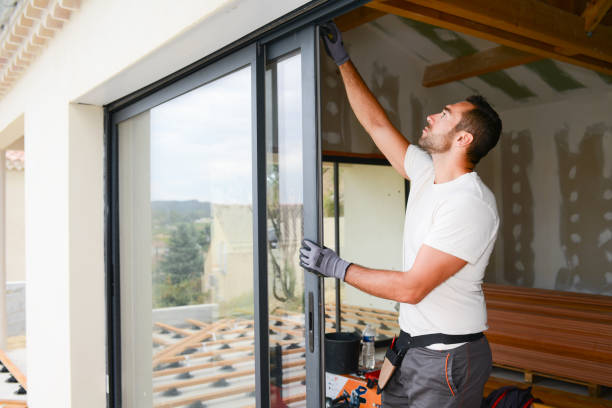Impact Windows and How Do They Differ From Regular Windows
Impact windows, also known as hurricane windows or storm windows, are specially designed windows that offer increased protection against strong winds, flying debris, and severe weather conditions. They are engineered to withstand the impact of high-speed winds and reduce the risk of property damage, personal injury, and intrusions during hurricanes, tornadoes, or other intense storms. These windows are built using advanced materials and construction techniques to provide enhanced safety and security compared to regular windows. One of the key differences between impact windows and regular windows lies in their structural integrity. Impact windows are constructed with a robust frame made of materials such as aluminum, steel, or reinforced vinyl, which are significantly stronger than the frames of regular windows. The glass used in impact windows is typically composed of two layers of glass with a tough, shatter-resistant interlayer in between, often made of polyvinyl butyral PVB or ethylene-vinyl acetate EVA.

This laminated glass is highly resistant to breaking upon impact, even when subjected to strong forces. Regular windows, on the other hand, usually consist of a single pane of glass within a less robust frame. While regular windows may provide adequate insulation and allow natural light to enter a building, they lack the specialized features and construction necessary to withstand the forces associated with severe weather events and check here https://fwaginc.com/. When exposed to high winds or impact, regular windows are prone to shattering, potentially leading to property damage, water infiltration, and increased vulnerability to wind-borne debris. The primary benefit of impact windows is their ability to protect homes and buildings during extreme weather events. These windows undergo rigorous testing procedures, such as impact resistance tests and cyclic pressure tests, to ensure their durability. Impact windows are designed to withstand high-speed winds, flying debris, and pressure differentials caused by storms, which helps maintain the structural integrity of the building envelope and reduces the risk of roof failure.
Furthermore, impact windows offer additional advantages beyond storm protection. They provide improved insulation, reducing energy consumption by minimizing heat transfer and air leakage. The laminated glass used in impact windows also offers enhanced sound insulation, blocking unwanted external noise and creating a quieter indoor environment. Moreover, impact windows provide an added layer of security by acting as a deterrent against forced entry attempts. In summary, impact windows are specifically engineered to withstand severe weather conditions and provide superior protection compared to regular windows. With their robust construction, multi-layered glass, and reinforced frames, these windows offer enhanced resistance to high-speed winds, flying debris, and other hazards. By investing in impact windows, homeowners and building occupants can have peace of mind, knowing that their property is well-prepared to face nature’s fury while enjoying the benefits of energy efficiency, noise reduction, and enhanced security.